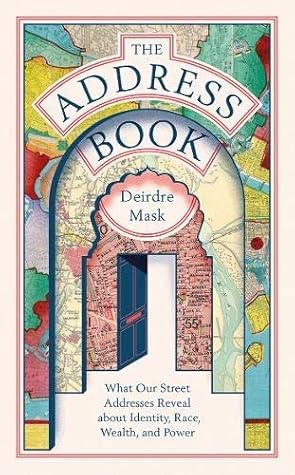More on this book
Community
Kindle Notes & Highlights
by
Deirdre Mask
Read between
March 24 - April 10, 2022
But stereotypes of drug abuse and lawlessness remain. Homelessness is deeply stigmatizing.
Sarah’s solution: ban the address. Or, rather, ban employers from asking for it before giving a job offer. Employers contact applicants by phone or email—what did they need the address for anyway? Simply taking that line of the application would stop discrimination—and perhaps give homeless people the confidence to apply.
unlike other cities I’ve lived in, London is remarkable in that the poor and the rich often live incredibly close together. Houses in my neighborhood listed for £1.5 million sit next to vast public housing apartment buildings. Grenfell Tower, a mostly working-class council estate where seventy-two people died in a 2017 fire, stood in one of London’s wealthiest boroughs, Kensington and Chelsea—where
all the things you can’t do without an address: get an ID card, a passport. You can’t get a marriage license without a street address, nor, in the UK, can you use a post office box. Credit agencies use them to give your credit score. To inform patients of their appointment dates, the National Health Service sends out letters.
Adopting the view that homelessness is a long-term status, rather than a temporary condition, can lead to despair. It’s one reason I’m told many who qualify for homeless services don’t accept them; to stop being homeless, you often have to find ways to pretend, sometimes even to yourself, that you aren’t.
I liked the subversive nature of it, the idea that a homeless person could have the Knightsbridge address a billionaire had paid so lavishly for. Why not give it to someone who can use it? The home may be empty, but an address never need be.
Burnham is now widely known for spurring the City Beautiful movement that inspired urban planning for decades. But before Chicago could be beautiful, it had to be organized.
In much of apartheid South Africa, as I already knew, there were no street names or numbers, particularly in the townships which were often simply called Blocks and were unmapped. It is not so different today. Dr. Louw was searching for a solution when he came across what3words. What3words is a start-up addressing system. The founder, Chris Sheldrick, is from Hertfordshire in the south of England.
the world into squares, 3 meters by 3 meters. Instead of using coordinates, they decided to use words, which are easier to remember than a string of numbers. Three words per square: 40,000 words, 64 trillion 3-word combinations. And so what3words was born. Every spot on the world’s surface now has its own what3words
The Rhino Refugee Camp in Uganda is using what3words to help people find their way to the camp’s churches, mosques, markets, and doctors’ office. The Mongolian postal service is using the addresses to send mail to nomadic families. And Dr. Louw now uses the three words to find patients in the townships of South Africa.
The addresses have the potential to revolutionize e-commerce around the globe. In much of the unaddressed world, the problem is not shipping the item from, say, China, to Tanzania. The problem, instead, is what logisticians call the “last mile”—more specifically that the last stretch of delivery can sometimes make up half the total delivery cost.
I knew by now how damaging it is not to have an address. Digital addresses can make these problems disappear. And these new addresses offer a quick and easy solution to a problem many governments are not tackling effectively.
The company has promised that the app and website will always be free, but I’m not sure I want a young start-up’s software to be the only place I can find out where I am. Google has impressively made its data open source, unlike what3words. Still, it’s Google, one of the richest and most powerful companies in the richest and perhaps the most powerful country the world has ever known. If nothing else, their Plus Codes pull people online and toward Google
But I’m not so sure how I feel about baked.crumbling.necks, its what3words address. At first, I thought clinging to our current system was just nostalgia. But it’s more than that; it is, perhaps, a symptom of the modern condition. We don’t know what the near future is going to look like—technologically or politically. Change seems to come more outrageously every year. And the more things change, the more we feel the need to anchor ourselves to the past. Street addresses have become one way to remember.
Digital addresses bypass arguments over the meaning of street names. But I like the arguments. Arguments are what divide communities, but they are also what constitutes them as communities.
And digital addresses don’t make communities. In a way, they can divide them. Your neighbor’s what3words address is completely unrelated to yours. You can’t learn her address from looking at her house—you have to ask an app, a third party. You can’t ask anyone on the street for directions.
Digital addresses will make life easier. But I don’t see them making it any richer.
This isn’t the first time we have revolutionized the ways we find each other. But in the eighteenth century, residents protested violently when officials marched through their villages painting numbers on their homes with that thick ink made from oil and boiled bones. The people understood the new numbers meant that they could now be found, taxed, policed, and governed, whether they liked it or not. They understood that addressing the world is not a neutral act. Do we?


